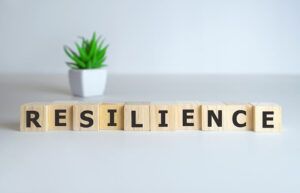In the intricate world of leadership, women often showcase not only their achievements but also a distinctive resilience that sets them apart. While it’s essential to recognize that not all women leaders are universally resilient, many tend to exhibit traits that, when leveraged, can enhance their resilience. Understanding and decoding these unique factors provides valuable insights, guiding organizations in crafting tailored strategies to fortify resilience through targeted initiatives.
Understanding the Foundations of Resilience in Many Women Leaders
Resilience in women leaders isn’t a one-size-fits-all concept. It’s a nuanced quality shaped by a blend of internal and external factors. Identifying and understanding this interplay is crucial for grasping the intricacies of the resilience blueprint that propels many women leaders forward.1. Emotional Intelligence and Empathy
A cornerstone of resilience in many women leaders lies in their high emotional intelligence and empathy. The ability to understand and connect with their own emotions, as well as those of others, enables these leaders to navigate challenges with grace and build strong, supportive teams. Leveraging emotional intelligence allows resilient women leaders to foster collaboration, inspire trust, and navigate complex interpersonal dynamics.2. Adaptability in the Face of Change
Resilient women leaders often exhibit a remarkable adaptability to change. Whether adapting to shifts in the industry, evolving team dynamics, or unexpected obstacles, their capacity to pivot and find new pathways is a key factor in their success. This adaptability is often rooted in a growth mindset, allowing them to view challenges as opportunities for innovation and learning.3. Network of Support and Mentorship
Behind many resilient women leaders is a network of support and mentorship. The relationships they build, both professionally and personally, play a crucial role in buffering against challenges. These networks provide not only a sounding board for ideas but also a safety net during turbulent times. Resilient women leaders actively seek out and cultivate these networks, recognizing the strength that comes from collective support.4. Self-Awareness and Authenticity
Many resilient women leaders possess a high degree of self-awareness. They understand their strengths and weaknesses, allowing them to leverage the strengths of others when necessary to adapt to change. This authenticity not only enhances their leadership but also contributes to building trust within their teams. The ability to show vulnerability in the face of adversity is a powerful factor in the resilience code.5. Mastery of Stress Management
The demands of leadership often come with high levels of stress. Many resilient women leaders, however, have developed coping mechanisms that allow them to stay focused and effective even in high-pressure situations. These leaders prioritize self-care, recognizing that maintaining their well-being is fundamental to sustaining resilience over the long term.Tailored Approaches to Resilience-Building Initiatives
Understanding the unique factors that contribute to the flexibility and strength of women leaders is the first step toward creating resilient cultures. Here’s how organizations can tailor initiatives to leverage these traits and amplify their impact.
Emotional Intelligence Training:
Incorporate training programs that specifically focus on enhancing emotional intelligence and empathy. These initiatives can include workshops, coaching, and experiential learning opportunities that allow leaders to strengthen their interpersonal skills.
Mentorship Programs:
Expand and formalize mentorship programs within the organization. Creating structured opportunities for leaders to connect with mentors who can provide guidance, share experiences, and offer support can significantly contribute to building resilience.
Cultivating a Culture of Adaptability:
Foster a culture that values adaptability and a growth mindset. Encourage continuous learning, experimentation, and innovation. By creating an environment that views failures as opportunities for learning, organizations empower leaders to navigate challenges with confidence.
Promoting Self-Awareness Workshops:
Implement workshops that focus on self-awareness and authenticity. Providing tools and resources to help leaders understand their strengths, values, and leadership style can enhance their ability to lead authentically and build resilience.
Stress Management Resources:
Offer resources and support for stress management, including mindfulness programs, wellness initiatives, and access to mental health resources. Recognizing and addressing the unique stressors faced by leaders is essential for sustaining their resilience.
By tailoring resilience-building initiatives to address traits that often come naturally to women leaders, organizations can empower team members to not only weather challenges but to thrive in leadership roles. The resilience blueprint is unique for each leader, and by acknowledging and cultivating these distinctive elements, organizations can unlock the full potential of resiliency.
Enjoyed this post? You might also like…










